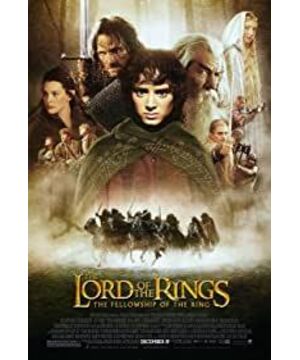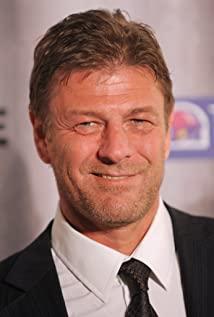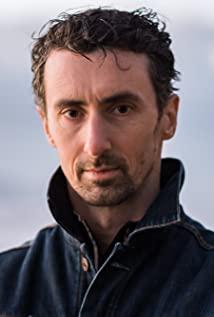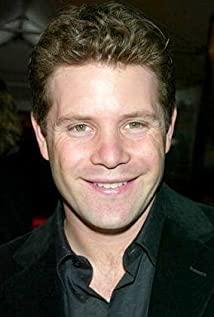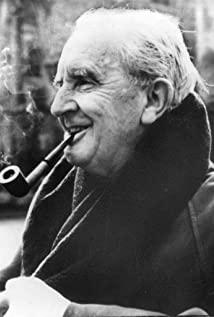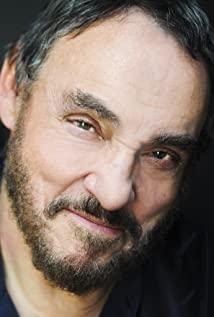The farewell between Aragorn and Frado, and the death of the regent prince Poromo are the climax of this film, and it is also one of the most successful changes in the film compared to the original.
Different from the original work, Aragorn did not let Frodo leave and stopped chasing, but confirmed Frodo’s motivation to guard the Lord of the Rings alone from the threat of the players, and overcome the temptation of the Lord of the Rings; and correspondingly, in the movie In the version, Polomo learned that Aragorn had successfully resisted the Lord of the Rings before he died, leaving tears of moving, and swearing allegiance to the opponent at the last moment. After this incident, the expedition team fell apart, acted separately, and entered the first stage of the "Twin Towers".
However, some readers may have questions: Why did Aragón and others (especially when they did not communicate with the other party in the original book) let Frodo escape without taking any direct or indirect measures to protect it? Why did he believe that Frodo would be less susceptible to temptation than himself? Why would you say that "the destiny of the ring-bearer is no longer in my control" and give up the task of guarding the Lord of the Rings, preferring to chase after Meri and Pippin, who seemed to have no strategic significance at the time?
From the perspective of Zhuge Liang, we will know that Frodo and Sam are indeed capable of fulfilling their missions, and that Meri and Pippin played an important role, and Aragorn, who tracked the two of Maypi, saved Rohan and Gondor, and Successfully ascended the throne as king. But from the perspective of the parties, the Lord of the Rings determines the key to the fate of Middle-earth. Losing the Lord of the Rings means losing everything. No matter how many enemies you kill at a time, no matter how many cities you hold, no matter how many hobbits you save, you can’t save it. This loss. Why did they throw this important task on two halflings who are incompetent?
I think that behind this question is the embodiment of the original author Tolkien's values: unlike the modern concept of striving and change, in Tolkien's world, obedience and faith in destiny are the true virtues.
Fate and duty
In a word, the virtues defined by Tolkien are loyal to your "duty" and accepting the destiny that was destined when you were born. Those who keep their duties are positive people. This is reflected in three nested areas: lineage, social class, and prophecy. In other words, your ancestry will determine your future social status and fulfill your predictions based on your attitude towards destiny.
For example, Aragorn is the heir of the royal blood, so he is qualified to take on the savior duty of saving Baicheng from distress and become the orthodox heir of Gondor. Here, the doomed destiny is transformed into social status through descent, thus confirming the prophecy that the holy white tree will bloom again, the holy sword will be recast, and the king will return to Gondor.
Faramo also has Western Numanur descent, and it is very distinctive (Gandalf in the original book), but he is the descendant of the prime minister, and his lineage is less noble than Aragorn, and eventually became the prime minister and right-hand of the new king; and His elder brother Pormo has a less distinct lineage, so the ending is worse and the character image is worse (especially in the original book);
And Iomo of Rohan and Iowen are equally kind and upright good people, but they do not have Numanor descent. They are the so-called middle man, so they became the wives of a prince and a prime minister. Horses also have noble blood;
In the whole book, Sam, who has the purest and simplest humanity, and may even be the most able to fight against the Lord of the Rings, his virtue is also loyal to his duty: Facing the temptation of the Lord of the Rings, he always remembers that he is Lord Frodo’s. Servants and friends resolutely say no to wealth and power that do not belong to them.
Contrary to the above characters, those who are not loyal to their duties and want to change their destiny and class since their birth are villains. Their attitude of evading fate will also verify the prophecy and lead to a tragic ending.
For example, Saruman in white was not satisfied with his identity as a sage, and wanted to become the ruler of Middle-earth, and thus was destroyed;
Echter, Gollum, and Pormo wanted to obtain the power of the Lord of the Rings that shouldn't belong to them, but they all paid a terrible price in the end;
Sauron and his master Mirko rebelled against the will of the Western gods, wanted to monopolize the Middle-earth Continent, and was eventually destroyed;
The Fiano expedition and the destruction of Numanor in the prequel Silmarillion were also the result of violating the will of the gods and wanting to surpass their own destiny.
To sum up, the standard of right and wrong in Tolkien's works is basically whether to follow fate or the will of the gods: those who obey the arrangements of fate and strictly observe their duties are good people, and those who want to transcend their own destiny and challenge the gods Who are greedy rebels. Where did Tolkien's values come from? I personally think that there may be the above three sources.
The source of fate
One is the "taboo" theme in folklore. Taboo, like pursuit, is the most extensive legendary theme in human history. It is manifested as a certain powerful temptation to cause devastating consequences by inspiring man’s original sins and evil thoughts, reflecting man’s awe of nature. The ring represents a certain forbidden power, just like its rudiment "The Ring of Nibelungen", which leads every director to the doom of destruction. The original sin as opposed to awe is curiosity and greed. This influence is now reflected in horror films. Readers who know these films know: How many terrorist incidents are caused by someone with low hands triggering a taboo mechanism?
The second is the feudal values of the Middle Ages. In the Middle Ages, obedience to kingship and religious authority was a true virtue, and for this reason, the chivalry represented by Roland appeared. In the original book of The Lord of the Rings, Hidden’s allegiance to Gondor under the restraint of the vermilion arrow is essentially a manifestation of the medieval vassal relationship: the ancestor of Rohan, Io, obtained the northern land gifted by Gondor as an ally, and the two countries usually Highly independent, non-interference, but promised to help when Gondor encounters a crisis, still has the color of the relationship between the monarch and the vassal. As for the rule of the whole society, people of each class should also do things that are consistent with their own status. Kings should be kings, vassals should be vassals, nobles should be nobles, and peasants should be servants. In Britain, which always retains the embodiment of the royal family and aristocracy, the influence of this idea is even more far-reaching. Until now, the class divide is still huge.
The third is Christian thought. The idea that Sauron and his master, Mirko, prefer the middle-earth to the king, rather than the West as slaves, is a derivation of the image of Satan. Gandalf, who crowned the new king, played the role of the pope, and was essentially the messenger of the gods and the spiritual mentor of the people; the holy white council composed of sages and elf leaders was more like the Holy See outside the secular kingship. Just as doctrinal authority cannot be shaken, the will of the gods actually represents absolute justice. Under the authority of God, obedience and belief trumps doubt and rebellion. Compared with personal thinking and desire, piety and faith are the true wisdom under this moral system.
The combination of the three forms the fateful view in Tolkien's world—resistance to the temptation of taboos, observance of medieval feudal morality, and belief in the will of the Western gods, which form the morality of those who obey their duties. The high ground makes the arrangement loyal to fate a kind of "great wisdom."
This is also why the good people in Tolkien's novels behave at ease, because they firmly believe in the orderliness of the world, and everything is free and stable, so the bridge to the bow is naturally straight. For this reason, in the original work, Elrond made people believe in their destiny when they walked. They could follow the crowd without a plan, or even disband in time. Gandalf also predicted that Guru would also play a key role. Behind this belief is the world created by the gods. The firm belief in the order. On the contrary, the bad guys are often utilitarian. They don’t believe in heaven, god, or destiny, but only believe in themselves. They rely on black technologies such as magic, industry, and the ring to do things that arrogate their status and status, and they become self-defeating and perish themselves. .
Interpreted in a Chinese context, this view of destiny is quite close to the ideal ruling order given by the heavens and the human beings and the monarchy and gods. For example, in the Romance of the Three Kingdoms, the reason why Cao Cao became the villain was that he spied on the artifact and tried to seize the throne that he shouldn't have in his inheritance. Since Cao Cao himself did not even possess the status of aristocratic family, to plunder things other than his duties was naturally politically incorrect under feudal morality. The reason why Liu Bei is decent is that the descent of the Han family gave him the legitimacy of his rule, just as the descent of Aragon guaranteed his inheritance. To a certain extent, this view of emphasizing the authority of destiny is not a distinction between east and west, but stems from the difference in consciousness induced by agricultural society and industrial society: in an agricultural society with extremely limited scope of activities, classes are more fixed and ambitions are suppressed. It is a virtue to happily know fate; but in the high-tempo industrial society, the industrial and commercial bourgeoisie surpassed the self-proclaimed feudal landlord to become the upper class, and courage, vision, and debate have become the standard for successful people. But obviously, Tolkien missed the morality of the pastoral world even more.
Destiny's Limited Liability System
So, what is Tolkien's view of destiny?
That is, destiny is doomed by heaven, embodied in your class, lineage, and role in the prophecy. A person should not resist fate or try to surpass the role he was given when he was born, otherwise he will be cursed by fate. Arrangements that are loyal to fate will be rewarded as a matter of course.
So what is the hero in Tolkien's eyes?
It is a person who firmly abides by the arrangements of fate, self-restraint, and strictly abides by his duty. This is the essence of Tolkien's heroism. Tolkien believes that even a small person can accomplish a heroic feat. In fact, he is saying that a small person must always be a small person if he wants to be a hero. Sam is a hero because he obeyed the duty of destiny before the temptation of the Lord of the Rings. He has always been a faithful servant of Frodo. If he wants to change his destiny and dream of transcending his original class to become a king or lord, he may succumb to The temptation of the Lord of the Rings turned into a villain like Saruman.
For this we can answer the question at the beginning, why did Aragon let Frodo go?
After understanding Tolkien's view of destiny, we can know: because it is not his duty, not part of his destiny.
The fate of Aragorn is to return to Minas Tirith and become king. The fate that Tolkien arranged for him did not include the Guardian Ring. As a decent person, he also realized this. In Chinese words, it is: "This is God's will." Since Frodo has gone, he can't take care of the rest.
So this is Tolkien's fatalism, the individual's limited responsibility for fate-everyone only needs to complete the role that fate gives you. Just like a small person cannot become a big person, a big person can only accomplish what hits a big person. Therefore, Aragorn can become a king and save the country, but he cannot touch the Lord of the Rings. Instead, this task should be entrusted to the small person to complete. In other words, even as a king, Aragorn is not the true master of destiny, but the executor of the doomed prophecy, a subdivision project manager who only pays attention to his own tasks, accepts the limited responsibility from his destiny, and only does his part. It will not intervene in the destiny tasks of other departments, and will not try to change the strategic direction of the entire organization. For this reason, Aragorn's withdrawal is natural and reasonable: in Tolkien's Middle-earth world, to hand the future to fate is by no means laziness and irresponsibility, but a manifestation of wisdom and inner determination.
The Road of Destiny under Film Reconstruction
Therefore, Tolkien's moral values extol the defense of the current order and the restraint of desires, and criticize ambition and greed, preaching optimism and knowing fate, letting nature take its course, and opposing man to conquer nature and conquer destiny. This is in conflict with the Western individualism that has developed continuously after the Renaissance: success is the quality that modern society cares more about than self-restraint. "ambition" and "unscrupulous" are gradually evolving into commendatory terms, and everyone is born equal. The concept of descent has also replaced pedigree theory, and changing fate has become synonymous with inspiration. The typical representative of this concept is the American Dream: a hero does not ask where he comes from, as long as he has ambition and strength, anyone can make a fortune in Milliken. If Tolkien is resurrected, he will probably reject Hollywood's American values. Fortunately, this movie retains the original style as much as possible.
But compared to the conservative fatalism in the original book, I think the biggest problem with the Lord of the Rings' fate setting is the boring and monotonous prophecy. The way to show the power of destiny is not to let the characters follow the arrangements of destiny, but to let them continue to doubt, resist, and even escape from destiny, but still let the prophecy be realized in other ways. For example, Oedipus’ father tried to kill the infant child in order to escape his prophecy of killing his father and marrying his mother, but this prophecy was fulfilled in a stranger way; Macbeth was invincible under the prophecy, but the prophecy could defeat his absurdity The accidents were turned into reality in unexpected ways.
In contrast, the Lord of the Rings predictions are too flat and straightforward and lack artistic quality. The only wave is Gandalf's prediction of Guru. The ballads about the recasting of the broken sword and the blossoming of the sacred white tree are extremely straightforward. It is not so much a prophecy, but more like a game strategy description held by the character. A sense of tension.
The bigger problem is that if you and Tolkien do not have a set of common values, you will not be able to understand the motives and rationality of many characters. For example, devout Christians, Buddhists, or fatalists may resonate with Tolkien on the release of Frodo by Aragon: Don't interfere with things that are destined. But if you don’t use some fatalistic patches and settings on your own, this is not a reasonable and self-consistent bridge, because from the text alone, you can’t find solid enough evidence to explain Aragon’s high degree of inaction at this time. It's more like a turning point made mechanically for plot development. The same is true for other plots—according to the logic of the original book, since Aragorn had long planned to return to Minas Tirith to succeed the throne, why did he wait until he was more than 70 years old, and the city broke out in real time? It was as if the biggest obstacle to enthronement was reached through fate-the regent King Dinese would die at this time so that he could ascend to the throne logically. At least in my opinion, from the perspective of some more authentic and realistic readers, the characters in Tolkien's works have a strong sense of motivation, which is out of the realism he preaches and should be established in fantasy.
Therefore, the film version of Aragorn’s adaptation of Frodo Farewell is at least easier for modern audiences to understand. This plot kills two birds with one stone: On the one hand, Frodo’s question of "Can you protect me from your own hands" made Aragón understand that one of them had run away. The reason for this makes Aragorn's separation from the mission of the Ring of War less blunt; on the other hand, Aragorn was able to overcome the temptation to obtain the allegiance of Polomo before his death, which not only enriched Polomo’s image, but also contributed to it. Aragon’s first growth and transformation: He called Gondor "our people" for the first time, and made the vow that Minas Tirith would never fall, taking the first step from self-exile. . This is actually a common feature of the movie trilogy: a large number of legendary characters in the original work have been secularized, and their process of change and growth has increased, portraying a more slender and personalized psychological transformation (for details, see The Great Reconstruction of the Second World— —On the reconstruction and inheritance of the original work by the Lord of the Rings movie trilogy ).
But if Tolkien himself resurrected, I guess he would not like these changes. Tolkien seems to prefer static characters, unchanging destiny, resolute and consistent image, and the magnificence and sadness of the characters in the vast historical territory. He is not keen on the self-change and delicate psychology of the characters from the micro perspective. Development, especially the ambition of trying to earn fate. It can be said that Tolkien advocates moderate struggle and hard work, doing his job well on the ladder placed by fate, and hates the arrogance of his role authority. For this reason, Aragorn calmly followed the guidance of fate to Rohan and Gondor, and handed over the mission of guarding the ring to Frado, the true person in charge of the most difficult mission of the Middle-earth Continent, and set foot on welcoming himself. The path of destiny.
First published in the B station column:
https://www.bilibili.com/read/cv5659886
View more about The Lord of the Rings: The Fellowship of the Ring reviews


